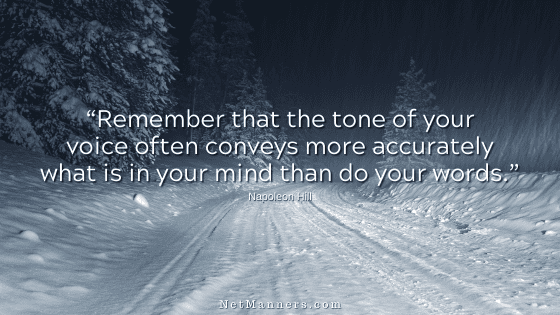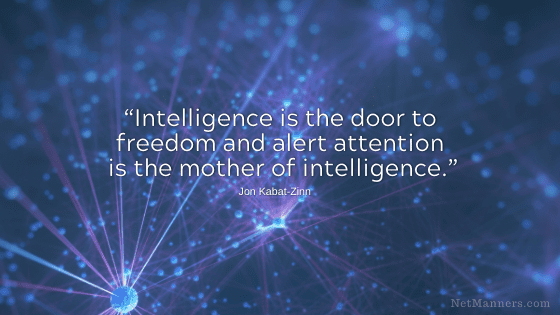Email Tone is Critical

When it comes to your emails, you don’t have the tone of your voice. But don’t underestimate that those on the other side of the screen will read a tone in your email.
This will happen based on your efforts to ensure tone clarity. This includes the words you use and any formatting you integrate, such as bolding or red text.
Email Tone is a Real Concern
Don’t underestimate tone; you need to be concerned about it. I receive emails from site visitors every day about this topic, and this is a valid concern.
The tone is set with each email you send. Every word you choose to bold, every word you omit or include. You control the tone.
Over the past week, I received several emails that were downright insulting in tone. The way these emailers worded their inquiries clearly indicated their true intent. They weren’t trying to be pleasant or professional.
Others were willing to extend courtesy and professionalism, which was also relayed via tone. They are intertwined.
Ironically, in many cases, when you respond to these types of communications, you may receive the response, “I didn’t mean it that way.” You did type those words and characters, so that is a cop-out.
How to check your tone?
If you are unsure of your tone or emotions or simply frustrated as you type an email, here’s what you do.
Step away from the computer and take a deep breath. Wait until you’ve had time to clear your head. Here’s where your voice comes into play. That is the voice the recipient will most likely hear in their head when they read your email.
Upon your return, read your email out loud and see if you would like someone to speak to you in that manner. You may be surprised at what this extra step will expose.
Understandably, there will be times when you are upset or frustrated by how someone emails you. Or if you don’t get the answers you are seeking. Be better than that and not respond in kind.
Unintentional Tone
Tone often determines whether we type an extra few words of thanks or avoid over-punctuating or formatting. We are frequently in a hurry or the heat of the moment, which is the worst time to respond to any important emails.
Not being face-to-face is not an excuse to be boldly rude or to make demands or accusations you wouldn’t dare make in person. Use email as the communication tool it is meant to be, not some way to flex your ego or selfish side of your personality just because you can.
Because when you do — it only reflects on you. And that’s rarely a good thing.






